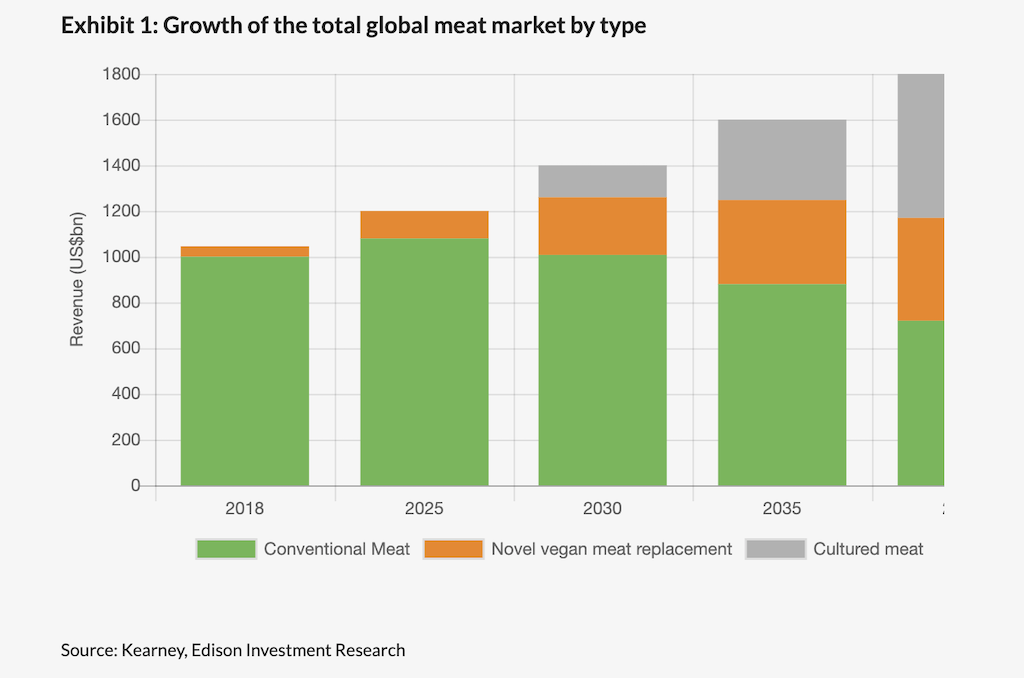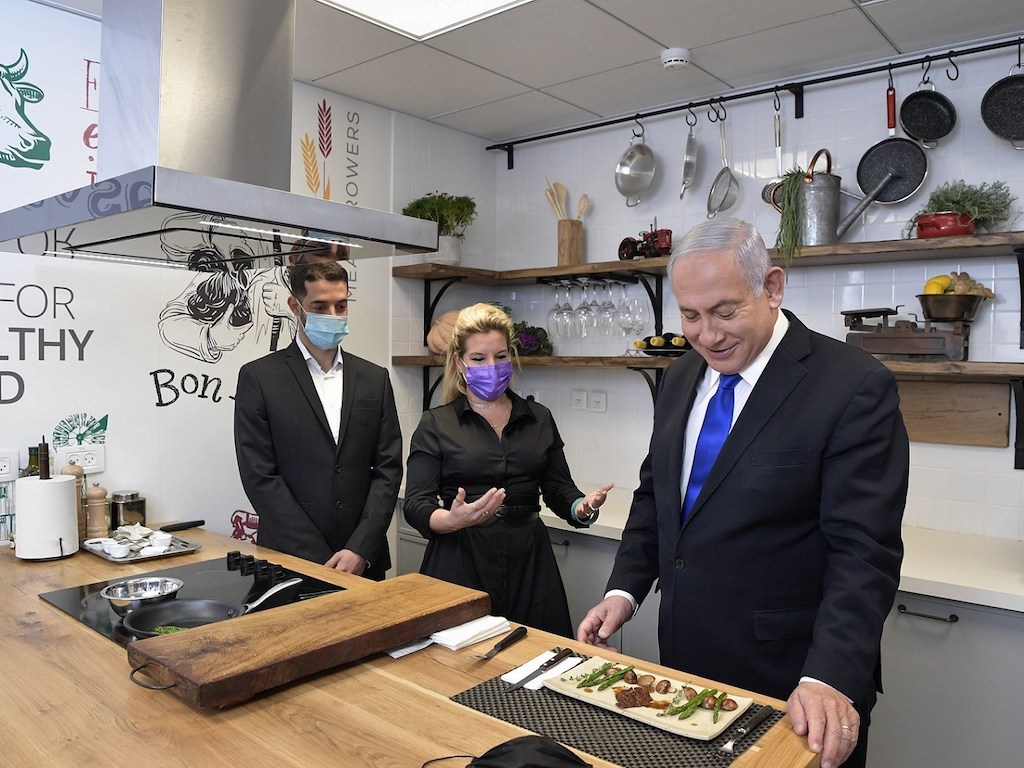Cell-Based Meat To Reach Price Parity By 2025 & Grow To US$140B Market By 2030, Says New Report
4 Mins Read
While plant-based proteins are showing double-digit growth rates and are forecasted to continue to shape the alternative protein industry, so will the rise of cell-based meat. In a new report, experts predict that cell-based proteins could achieve price parity with conventional meat within a matter of years and grow to become a formidable US$140 billion market by the end of the decade.
In a recent report published by investment research firm Edison Group, researchers believe that the future for cell-based proteins will be bright. While the report, titled Meating Demand, predominantly focuses on the 15% year-on-year growth that plant-based meat alternatives are expected to see, opening up huge opportunities for food industry players across the supply chain and investors, the analysis points to the rising competition that the cell-based sector will bring in the coming years.
One graph in the report, based on Edison Investment Research and previous data from consultancy Kearney, shows that alternative proteins will be nabbing a greater slice of the overall global meat market over time. By 2030, while vegan meat replacements would have grown to US$252 billion, the cultured meat industry will have quickly risen up the ranks, rivalling at a US$140 billion – marking an enormous jump within a matter of years.
This could be as early as 2025, which is when cell-based meat is expected to be produced on an industrial scale and at a price equal to conventional meat.

“Cell-based meat is becoming a prominent alternative and has the potential to significantly disrupt the market due to its ability to create animal meat without the environmental impact,” said the authors.
The researchers add: “As cell-based meat becomes revenue generating there will be scope for greater investment. This could be as early as 2025, which is when cell-based meat is expected to be produced on an industrial scale and at a price equal to conventional meat.”
Behind the significant growth that cell-based protein will undertake within this decade, according to the report, is the number of big meat producers already pouring funds into the sector. “Crucially, large-cap public meat producers are among those to have already invested, with names including Tyson, Cargill and Merck,” the analysts wrote.

While Cargill has backed Israeli cultivated meat producer Aleph Farms, whose cell-based steak has been tasted by prime minister Benjamin Netanyahu, fast food giant KFC has partnered with startups to develop lab-grown chicken nuggets in Russia.
Crucially, large-cap public meat producers are among those to have already invested, with names including Tyson, Cargill and Merck.
The fried chicken chain has also tapped Dutch cultivated meat pioneer Mosa Meat, who have recently raised yet another round of major funding, to use its lab-grown chicken once it is commercially available.
In a further boost to the cell-based protein industry is no doubt the latest headlines that San Francisco-based Eat Just has made recently. The food tech has just completed the first-ever commercial sale of cultivated meat to a Singapore restaurant, following the city’s food authorities giving the world’s first go-ahead to commercialise its cultured chicken bites.

Although the plant-based market is already sizeable, the ongoing innovation particularly on cell-based products could see both markets grow considerably in the next decade.
Max Hayes, Analyst, Edison Group
Covid-19 has only worked to accelerate the overall alternative protein trend, the report notes, citing how “non-meat alternatives stocks have performed exceptionally” amidst the economic volatility, recovering better than the broader food category as a whole. In the 12 months dating to October 2020, shares of plant-based meat maker Beyond Meat have outperformed the S&P 500 Packaged Food and Meats index by 37%.
Commenting on the overall findings, Max Hayes, analyst at Edison and co-author of the report, said: “Plant-based meat alternatives have managed to pass their first stress tests during the pandemic, with pure-play companies navigating the market volatility much more effectively than broader food producers.”
“Moreover, although the plant-based market is already sizeable, the ongoing innovation particularly on cell-based products could see both markets grow considerably in the next decade.”
Lead image courtesy of Aleph Farms.




